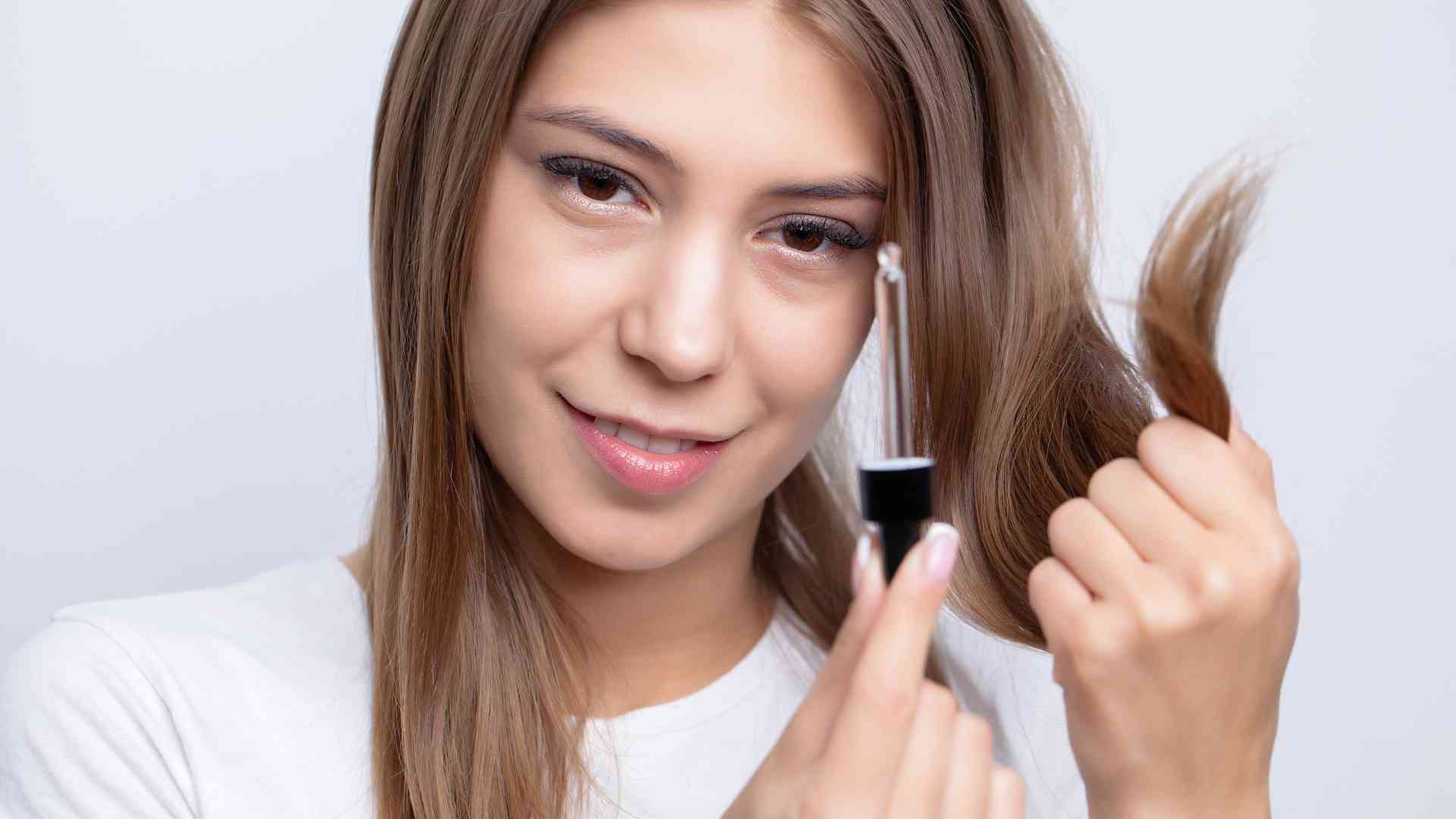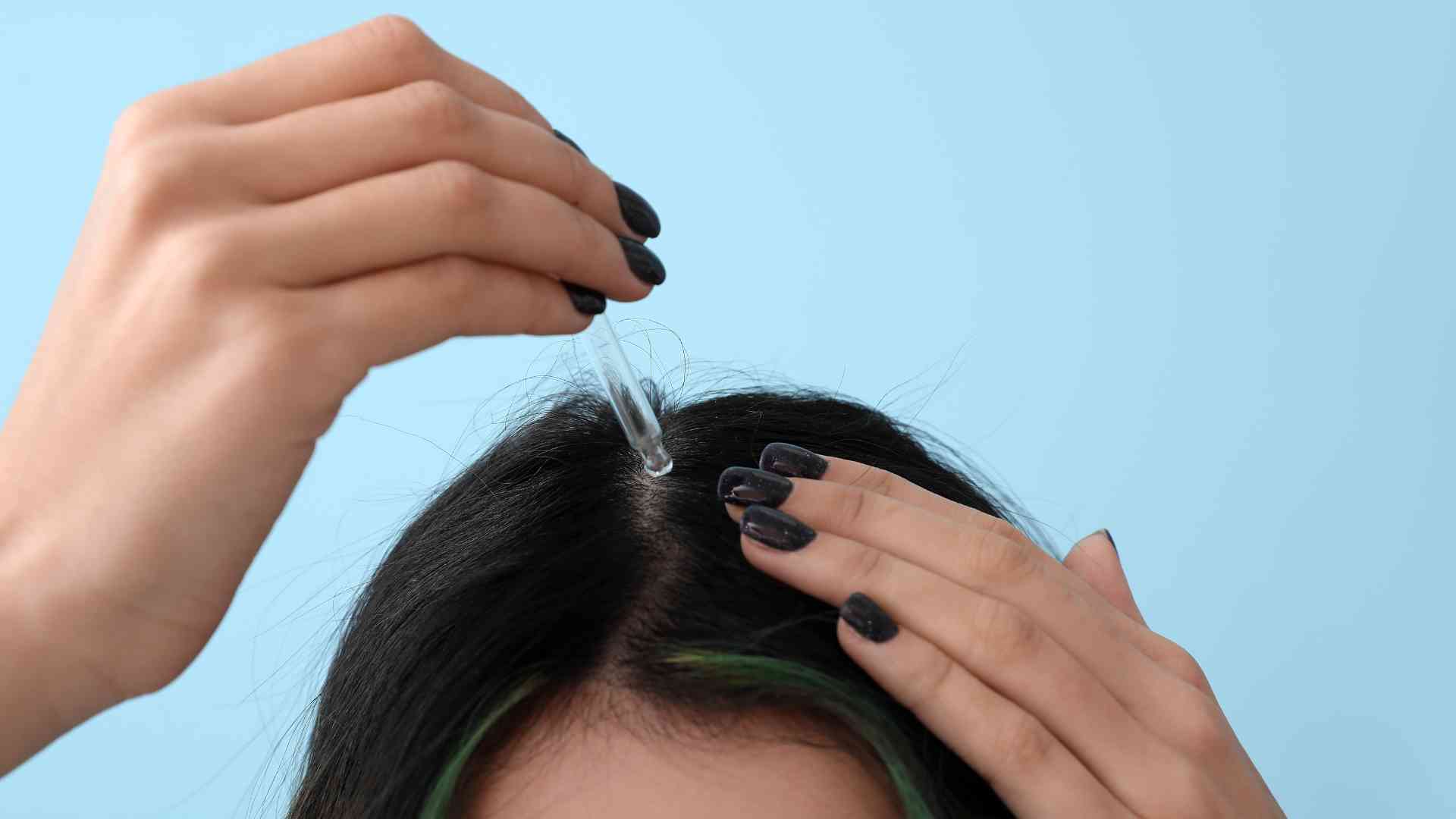The concern of hair loss is a shared experience that transcends age, gender, and background. The desire for a full and healthy head of hair often leads individuals on a quest for accessible and effective solutions. Amid this quest, over-the-counter (OTC) treatments emerge as a popular avenue for those seeking options that don’t necessitate a prescription or medical intervention.
In a world where information and products are readily available, OTC treatments offer a convenient way for individuals to take proactive steps in addressing hair loss concerns. These treatments span a range of formulations, from shampoos to topical solutions, and promise varied levels of effectiveness. This article embarks on a journey through the landscape of OTC treatments for hair loss, shedding light on their mechanisms, ingredients, and the scientific evidence supporting their claims. By exploring the efficacy of these readily accessible solutions, we aim to empower individuals with the knowledge they need to make informed decisions about their hair health.
Understanding Over-the-Counter (OTC) Treatments:
Over-the-counter (OTC) treatments encompass a wide range of products available without a prescription, designed to address various health and cosmetic concerns, including hair loss. Unlike prescription medications that require a doctor’s authorization, OTC treatments can be purchased directly from pharmacies, stores, or online platforms, offering convenience and accessibility to individuals seeking solutions for their hair loss concerns.
The distinction between OTC treatments and prescription medications lies in their ingredients, formulations, and intended uses. Prescription medications are typically regulated by healthcare professionals due to their potent nature and potential for side effects. In contrast, OTC treatments are considered safe for self-administration when used according to the product’s instructions.
The appeal of OTC treatments for hair loss lies in their accessibility. They provide a straightforward approach for individuals to take charge of their hair health without the need for medical consultations or prescriptions. This convenience is particularly beneficial for those with mild to moderate hair loss who prefer to explore solutions on their terms. Additionally, the array of OTC options, which may include shampoos, foams, serums, and supplements, allows individuals to choose products that align with their preferences and lifestyle.
As we delve deeper into the realm of OTC treatments for hair loss, we’ll explore the effectiveness of various formulations, ingredients, and strategies. By demystifying the science behind these accessible solutions, we empower individuals to make informed choices and embark on a path towards healthier, more vibrant hair.
1. Minoxidil: A Widely Used OTC Option
Minoxidil stands as a prominent and well-known over-the-counter (OTC) treatment for hair loss. Recognized by its various brand names, minoxidil offers individuals an accessible and non-prescription approach to addressing hair thinning and promoting hair growth.
Mechanism of Action: Prolonging the Hair Growth Phase
Minoxidil’s effectiveness lies in its unique mechanism of action. It is a vasodilator, which means it widens blood vessels. When applied topically to the scalp, minoxidil dilates blood vessels around hair follicles, allowing for improved blood circulation and nutrient delivery. This revitalizes hair follicles and can prolong the anagen, or growth, phase of the hair cycle. As a result, hair follicles spend more time actively producing hair, leading to increased hair thickness and coverage over time.
Application, Potential Side Effects, and Effectiveness:
Minoxidil is typically available in both liquid and foam formulations. It is applied directly to the scalp once or twice daily, depending on the product’s concentration. While minoxidil is generally well-tolerated, some individuals may experience mild side effects such as scalp irritation or dryness.
Effectiveness can vary among individuals. Minoxidil tends to work best for individuals experiencing mild to moderate hair loss, and results may become visible after a few months of consistent use. It’s important to note that discontinuing minoxidil usage may lead to a gradual return to the previous state of hair loss.
As you consider minoxidil as an OTC option, consulting with a healthcare professional or dermatologist is advisable. They can provide personalized guidance based on your hair loss severity, potential interactions with other products, and any underlying conditions.
Minoxidil’s popularity as an OTC treatment underscores the growing demand for accessible solutions to hair loss. Its straightforward application and potential benefits make it a valuable tool in the pursuit of healthier and more robust hair.
2. Finasteride: Prescription vs. OTC
Finasteride, a medication with proven efficacy for treating hair loss, is often prescribed to individuals experiencing male pattern baldness. However, it’s important to note that finasteride is available as a prescription medication rather than an over-the-counter (OTC) treatment.
Prescription vs. OTC: Differences and Considerations
Prescription finasteride is a pharmaceutical drug that requires authorization from a healthcare professional, typically a dermatologist or physician. It works by inhibiting the conversion of testosterone to dihydrotestosterone (DHT), a hormone implicated in hair loss. This reduction in DHT levels can slow hair thinning and stimulate regrowth in some individuals. Due to its potent mechanism, potential side effects, and the need for medical supervision, prescription finasteride is closely monitored by healthcare providers.
While there are no OTC products that contain pharmaceutical-grade finasteride, there are OTC supplements that claim to have finasteride-like effects. These supplements often contain natural ingredients purported to inhibit DHT production or promote hair growth. However, the effectiveness of these products varies widely, and their claims should be critically assessed.
It’s crucial to approach the decision of using finasteride, whether prescription or OTC supplements, with caution. Consulting a healthcare professional is recommended before initiating any treatment regimen. They can help you determine the most suitable course of action based on your individual needs, potential side effects, and underlying health considerations.
As you explore options to address hair loss, be sure to make informed decisions guided by professional expertise to ensure your safety and the best possible outcomes for your hair health.
3. Nutritional Supplements for Hair Health

Nutritional supplements have gained popularity as a potential approach to support hair health and combat hair loss. These supplements typically contain a mix of vitamins, minerals, amino acids, and other compounds believed to contribute to the strength, growth, and overall condition of hair.
Key Ingredients and Potential Effectiveness:
- Biotin: Biotin, also known as vitamin B7, is often touted for its role in promoting healthy hair, skin, and nails. It’s believed to play a role in strengthening hair follicles and improving hair texture. While biotin deficiency can lead to hair thinning, supplementing with excessive amounts may not necessarily result in additional benefits for individuals with normal biotin levels.
- Zinc: Zinc is an essential mineral involved in various cellular processes, including hair growth. It helps maintain the structural integrity of hair strands and is involved in the production of proteins that make up the hair shaft. Adequate zinc intake is important for overall hair health, but excessive supplementation can have adverse effects.
- Marine Collagen: Marine collagen, derived from fish or other marine sources, is rich in amino acids that contribute to the structure of hair proteins. Collagen is a building block for hair, skin, and nails, and supplementing with marine collagen may support hair growth and texture.
Potential Considerations:
It’s important to note that while these supplements may offer potential benefits, their effectiveness varies among individuals. Genetics, overall health, diet, and underlying conditions can all influence the impact of supplements on hair health. Additionally, excessive supplementation can lead to imbalances or unwanted side effects, underscoring the importance of moderation and professional guidance.
Before incorporating nutritional supplements into your routine, consult a healthcare professional or registered dietitian. They can assess your specific needs, recommend appropriate doses, and help you make informed decisions about supplementing for hair health. Remember, achieving and maintaining healthy hair involves a comprehensive approach that includes a balanced diet, proper hair care, and lifestyle considerations.
4. Laser Therapy Devices: OTC Hair Growth Tools

Low-level laser therapy (LLLT) devices have emerged as a non-invasive and over-the-counter (OTC) solution for individuals seeking to address hair thinning and promote hair growth. These devices utilize laser or light-emitting diodes (LEDs) to deliver specific wavelengths of light to the scalp, with the aim of stimulating hair follicles and improving hair health.
Mechanism of Action: Stimulating Hair Follicles
LLLT devices work on the principle of photo-biostimulation. When the targeted light penetrates the scalp, it interacts with the cells in hair follicles. This interaction is believed to enhance cellular metabolism and circulation, leading to improved blood flow to hair follicles. This revitalization of hair follicles can potentially prolong the anagen (growth) phase of the hair cycle, leading to increased hair thickness and density.
Effectiveness and Consistency: Varying Opinions
Opinions on the effectiveness of LLLT devices vary. Some studies and anecdotal evidence suggest that regular use of these devices can lead to visible improvements in hair growth and thickness. However, the outcomes can be influenced by factors such as the device’s design, the quality of LEDs, and the consistency of use. As with many hair loss treatments, individual responses may differ.
Consistency is key when using LLLT devices. Results may take time to become noticeable, and consistent use, often several times a week, is typically recommended to maintain any improvements.
As you consider incorporating LLLT devices into your hair care routine, it’s important to manage expectations and understand that results may vary. Consulting a healthcare professional or dermatologist can help you make an informed decision based on your specific hair loss concerns, lifestyle, and preferences. LLLT devices, while promising, are just one of the tools in the array of OTC options available for supporting hair health.
5. Herbal and Natural Remedies
In the quest for hair health, herbal and natural remedies have captured the attention of many seeking alternative solutions. Ingredients like saw palmetto, rosemary oil, and aloe vera have been proposed as potential aids in addressing hair loss and promoting hair growth.
Potential Benefits of Herbal Ingredients:
- Saw Palmetto: Saw palmetto is often suggested for its potential to inhibit the production of dihydrotestosterone (DHT), a hormone implicated in male pattern baldness. By reducing DHT levels, saw palmetto may help slow hair thinning and support hair follicle health.
- Rosemary Oil: Rosemary oil is believed to improve blood circulation to the scalp and stimulate hair follicles. Its antioxidant properties may also contribute to a healthier scalp environment, supporting hair growth.
- Aloe Vera: Aloe vera contains enzymes that can promote hair growth by removing excess sebum, a natural oil produced by the scalp. Its soothing properties can also alleviate scalp irritation and maintain a conducive environment for hair growth.
Cautious Consideration and Lack of Conclusive Evidence:
While these natural ingredients hold promise, it’s important to approach them with cautious consideration. The efficacy of herbal remedies for hair health lacks conclusive scientific evidence. Results can be inconsistent, and individual responses vary.
Before integrating herbal and natural remedies into your hair care routine, consult a healthcare professional or dermatologist. They can offer guidance based on your specific concerns, the ingredients’ compatibility with your skin and hair type, and potential interactions with other products.
Remember that while nature’s remedies can be alluring, the path to hair health requires a balanced approach that incorporates proven strategies, healthy lifestyle choices, and informed decision-making. Herbal remedies, when approached with realism and professional guidance, can complement your overall hair care journey.
Practical Tips for Choosing OTC Treatments

Selecting the right over-the-counter (OTC) treatments for hair loss requires a thoughtful and informed approach. As you explore the array of products available, consider these practical tips to make informed decisions that align with your hair health goals.
- Read Product Labels: Carefully review the labels of OTC treatments. Look for ingredients, directions for use, and any precautions or potential side effects. Understanding what a product contains and how it’s meant to be used is crucial for safe and effective application.
- Research Ingredients: Take the time to research the ingredients in the OTC treatments you’re considering. Look for scientific studies or credible sources that support their effectiveness for hair health. This can help you differentiate between marketing claims and ingredients with proven benefits.
- Consult Healthcare Professionals: Seeking advice from healthcare professionals or dermatologists is invaluable. They can provide personalized recommendations based on your unique hair loss concerns, medical history, and lifestyle. Their expertise can help you make choices that align with your specific needs.
- Be Patient and Consistent: OTC treatments often require time to yield visible results. Patience is key. Consistent use, adhering to the recommended application frequency and duration, is essential for maximizing the potential benefits of these treatments.
- Manage Expectations: Keep in mind that OTC treatments may not work for everyone, and results can vary. It’s important to have realistic expectations and understand that hair health is influenced by a combination of factors, including genetics, lifestyle, and overall health.
- Monitor and Adjust: Regularly assess the progress of your chosen treatment. If you notice changes in your hair health or experience any adverse effects, consult a healthcare professional for guidance. They can help you adjust your regimen as needed.
- Holistic Approach: Remember that OTC treatments are just one component of a holistic approach to hair health. Maintaining a balanced diet, managing stress, and adopting healthy hair care practices contribute to the overall well-being of your hair.
Taking charge of your hair health with OTC treatments requires a well-informed and patient mindset. By arming yourself with knowledge, seeking professional guidance, and approaching treatments with realistic expectations, you empower yourself to make choices that support vibrant and healthy hair.
Watch Are there any vitamins that may help with hairloss? | Video
Top 5 FAQs and answers related to 5 Effective Over-The-Counter Treatments for Hair Loss
Are there any OTC treatments that actually work for hair loss?
Yes, there are OTC treatments that have shown potential effectiveness for hair loss. Minoxidil is a well-known OTC treatment that has been clinically proven to promote hair growth and slow hair thinning. However, results can vary among individuals, and it’s important to manage expectations.
Do herbal remedies and natural supplements work for hair loss?
Some herbal remedies and natural supplements, like saw palmetto or marine collagen, have been proposed as potential aids for hair health. While there is anecdotal evidence suggesting benefits, scientific research is often inconclusive. Consult a healthcare professional before using such products.
Can OTC treatments completely reverse baldness?
OTC treatments, including minoxidil, may help slow down hair loss and promote regrowth to some extent, but they might not completely reverse baldness, especially in advanced cases. They tend to be more effective for individuals with mild to moderate hair loss.
How long does it take to see results from OTC treatments?
Results from OTC treatments can vary. For minoxidil, noticeable improvements may become visible after a few months of consistent use. However, individual responses differ, and patience is key. Continued use over an extended period is generally necessary to maintain any positive outcomes.
Should I consult a healthcare professional before using OTC treatments for hair loss?
Yes, it’s advisable to consult a healthcare professional or dermatologist before starting any OTC treatment for hair loss. They can assess your specific condition, recommend suitable treatments, provide guidance on usage, and help manage any potential side effects.
Conclusion

In the pursuit of healthy and vibrant hair, the realm of over-the-counter (OTC) treatments offers a variety of options for individuals seeking accessible solutions. We’ve explored a range of possibilities, from minoxidil and herbal remedies to laser therapy devices and nutritional supplements. While each option presents potential benefits, it’s essential to approach them with realistic expectations and well-informed decisions.
OTC Treatments: A Spectrum of Potential
Minoxidil, a proven OTC treatment, stands as a well-recognized option for promoting hair growth and addressing hair thinning. Herbal ingredients, nutritional supplements, and laser therapy devices also hold promise, albeit with varying levels of scientific evidence supporting their efficacy. The effectiveness of OTC treatments often depends on individual factors, including genetics, hair loss severity, and overall health.
Informed Decisions and Professional Guidance
As you explore OTC treatments, remember that an informed approach is key. Reading product labels, researching ingredients, and consulting healthcare professionals are crucial steps in making choices aligned with your hair health goals. Understanding that results may take time and consistency, managing expectations is equally important.
Empowering Yourself with Knowledge
Your journey toward healthier hair involves both active participation and patience. OTC treatments can be valuable tools in this journey, but they are just one piece of the puzzle. By embracing a holistic approach that includes a balanced lifestyle, proper hair care, and professional advice when needed, you empower yourself to make choices that positively impact your hair health.
In the pursuit of vibrant hair, remember that no two journeys are the same. Armed with knowledge and guided by informed decisions, you’re equipped to explore OTC treatments with confidence, curiosity, and a realistic outlook. Your hair health is a reflection of your care and attention, and by embracing the array of OTC possibilities, you take another step toward your goal of healthier, more resilient hair.
Please share this 5 Effective Over-The-Counter Treatments for Hair Loss with your friends and do a comment below about your feedback.
We will meet you on next article.
Until you can read, Can Hair Loss Symptom of Underlying Medical Condition?